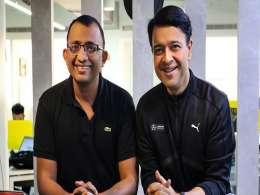I recently came back from yet another trip to Singapore which again opened my eyes to what is happening in other parts of the world, but not here in India, at least not in a meaningful way. I have written previously about the lack of product innovation, at least at a startup level, here in India. This recent trip was again a validation of the same, albeit via a benchmark that Singapore set for me. By the way, there is plenty of innovation happening within Multinational Corporations in India, and some of that research I am hearing about is truly ground-breaking. Yet, there isn’t much of that at the startup level. And there have been several water cooler conversations with others both within and outside the VC industry as to why that the startup innovation culture hasn’t taken hold here in India. I don’t know the answer but will try and explore in this article.
When one thinks about innovation, it’s often easiest to start with examples that are most often cited. To that end, Israel is often held as a prime example of a country that is truly entrepreneurial. What is it about Israel that makes it so? The obvious answer (at least partially) is the fact that when one is surrounded by hostile neighbors, risk-taking is not an option, but part of daily life. That very risk-taking DNA is embedded into Israeli life from an early age. DFJ has a partner fund in Israel called DFJ Tamir Fishman. I was actually speaking with Eldad Tamir, the co-founder and Managing Partner of the fund at a meeting recently about this very subject. He was of the opinion that thinking “world-changing” or “game-changing” is something that one has naturally based on family, surroundings, upbringing, and not something that can be acquired academically or learned. In Israel, people think that way because they have to. They have to build a better mousetrap before the enemy does. Given the mandatory military service, everyone pretty much has the focus, discipline and accountability that I so often see lacking in startups. There is, of course, the Silicon Valley culture of innovation. That is largely in part due to the history and the over-used term “ecosystem” which comprises of large companies, where teams form and spin off new startups, the angel and venture capital availability, academia where ground-breaking research is being done with the flexibility to let professors go on sabbatical to start new ventures, a large local market, an available and talented pool, and of course hundreds of examples of success stories that keep the entrepreneurial zest flowing.
I am guessing that most people don’t put Singapore in the same league as Israel or Silicon-Valley, but Singapore was a bit of a pleasant surprise for me. It’s a country that sometimes seems more like a museum than a nation, especially after visiting from India. To be quite honest, after some time, I actually was missing the crowds, chaos, traffic and the hustle-bustle that is evident in any tier 1, 2, 3 or 4 city in India, but was afraid of being caned in public if I tried to create that on my own in Singapore.
I was invited to speak at an event called iMatch where global VCs and corporate development folks from large companies are brought to Singapore to interact with interesting startups and provide candid, real-time feedback and potentially fund them. In this particular case, the event was focused on only media companies (gaming, online apps, social nets etc.). During the two days in Singapore, I had a chance to listen to about 20 pitches as part of a panel, visit the National University of Singapore as well as the Technical University, go to an incubator and also meet another dozen companies one-on-one. What really blew me away was the political will and commitment of the government and various agencies to catalyse entrepreneurship and technology innovation. When I spoke with the local bureaucrats, I got the feeling that I was talking with business managers, rather than political lifers. Specifically, they were candid in their views on what Singapore has to offer. They shared the fact that the city-state had planned on becoming the trading hub, and then transitioning into a manufacturing destination especially for semiconductor and electronics OEMs. Just like a company cannot be a “one trick pony”, this tiny country is constantly looking to reinvent itself, and be on the bleeding edge of “something new”, realizing that it doesn’t have neither natural resources nor a large domestic market to be able to sustain organic growth. The other “ah-ha” comment was that I heard was the fact that “Singapore is not afraid of failing”. Just like a startup, the country experiments and follows the philosophy of “fail early, fail often, but continue to experiment”. Now, that the stronghold on the manufacturing sector is loosening to a certain extent, Singapore is looking at other high technology sectors to foster next generation innovation. The country has set up a “biopolis” technology park with top notch infrastructure and facilities to attract the best bio-tech researchers (of course, financial incentives are also in place). As an example, a couple of stellar bio professors have recently moved to Singapore from MIT.
I spent most of my time on this trip at another technology park called “Fusionopolis”, which is the hub for media related innovations being done by primarily small companies. And other such “technolopolis(es)” are coming online in the coming months. INSEAD has set up a satellite campus in Singapore; Lucas Films has established a significant presence and MIT has set up a Joint Venture, called Gambit, to focus on Gaming (online, animation) related research. All these are examples of not only the larger vision that the country has but specific examples of that vision being turned into action very quickly.
During the course of two days, I had the chance to interact directly with many media startups. Although most were not all that interesting, there was a handful that I found to be very interesting. Quite honestly, if these companies were in Silicon Valley, some of them would have been funded by VCs. I am not sure I can honestly say that about any one event where I have had the chance to interact with startups in India.
The Singapore government via agencies like the Economic Development Board and Media Development Authority, have put in place significant capital and initiatives to truly catalyse innovation and entrepreneurship. Virtually anyone with a technology related idea can apply for and receive a $50k grant. There are additional phases whereby further grants are available (either direct grants or those matching equity infusion into companies) based on the progress made by the startups. The startups get connected to one of a variety of incubators sponsored by the government, whereby physical infrastructure as well as mentorship/guidance is provided. The entire process has discipline and focus, and run very much like a business.
I know that the above sounds a lot like an infomercial on Singapore. But there is a method to my madness to link all of this back to the issue at hand – culture of innovation. I was recently speaking with a serial entrepreneur from Silicon Valley as we discussed the topic of dearth of product innovation in India. His response was a suggestion that there perhaps weren’t enough “mavericks”, those entrepreneurs on the bleeding edge with gutsy stories of persistence and commitment to a goal/vision against all odds. But again, the question that needs to be asked is whether those mavericks are naturally that way, or is it something that is acquired/learned. I don’t know if I have the complete answer, but I am becoming a strong believer in the notion that there typically is a catalyst or a forcing function that drives people to think innovatively. In Israel, it’s simply part of being Israeli given the culture, history and geography. In the US, especially in Silicon Valley, there is simply no escaping it. The entire region is built on the often-scarred back of maverick entrepreneurs that keeps driving others to say “if they can do it, so can I” and “I am not afraid to fail” (which, by the way, still has a stigma attached to it in India). By the way, the US Energy Secretary Chu has been busy giving billions of dollars in grants to small and large companies who are working on groundbreaking technologies in renewable energy and energy efficiency. As an example, Tesla, an electric vehicle company based in Silicon Valley, got over $400M in grant money to accelerate both R&D and production of electric vehicles. There are dozens of startups in the renewable energy space that have benefitted from these federal initiatives. This, in addition to the inherent Silicon-valley culture is acting as an additional catalyst to foster innovation, albeit in a particular segment. In Singapore, the government itself is providing the catalyst for innovation by education, financial and infrastructure resources, and unmitigated political will and commitment. Similarly, I am certainly hopeful that the government in India, at the centre and the state levels will take the lead not only in announcing initiatives (the solar mission, among others as examples), but back those up by putting processes in place to provide grants to large and more importantly small companies to help achieve those national mandates. This is something that most likely will need to be done via public private partnerships in India.
I can definitely see many readers vehemently disagreeing with the notion that India doesn’t have the culture of innovation. The success of various sectors from retail, to telecom and IT services companies and many more is testament to the Indian innovation. I am not doubting that, and Indians perhaps have done a better job than anyone else when it comes to innovation around business models, physical distribution, initiatives around Bottom of the Pyramid etc. But I am talking more about engrained product innovation where coffee table conversations involve “how can we change the world by creating something better and faster”. Perhaps it’s a little of all the various points that I have mentioned (mindset, surroundings, examples/mavericks, government led initiatives etc.) that will finally lead India into being thought of less as a “services economy” and more as a hotbed of product innovation.





